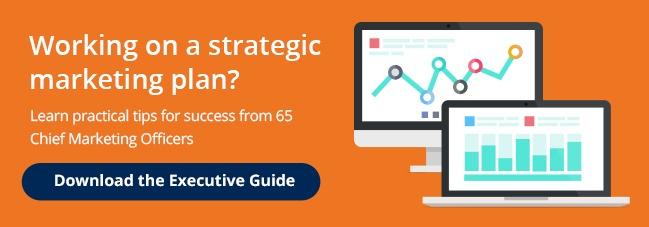Don't Prioritize Activity Over Effectiveness in B2B Marketing
There’s something about being busy that gives great comfort. You can operate head-down, blissfully unaware of what’s going on elsewhere, pounding out whatever tasks or projects you have on your list. It can give a very satisfying feeling of short-term productivity.
The challenge, of course, is that if you do this long enough, and you’re not doing the important things, you will look up one day and your home/business life may not be what you want it to be. You got so focused on your activities that you forgot to think about whether those activities were taking you towards your goals.
I see this problem in the realm of B2B marketing all the time. A company will hire a new marketer or launch a new marketing campaign, and they’ll focus on a number of activities at hand. They will send out lots of direct mail letters, or post lots of tweets and Facebook updates (for example), or develop a new website and launch it with great fanfare to their customer and prospect base. And for a short while they’ll be very pleased. “We’re getting a lot done!” they’ll proclaim. And indeed, they are doing lots of activities.
But after a while, perhaps it’s a few months or several weeks, they’ll have an unsettling realization. “What’s come of all those tweets/blogs/letters/website announcements we did? Did we get any leads from them? Did we do any business? Has our brand recognition level increased?” And too often, the answers are no.
This happens in B2B, particularly in small and mid-sized companies, for the simple reason of lack of expertise. There are, sadly, relatively few professionals right now who really understand B2B marketing and how it differs from consumer marketing. A B2B company may well hire a marketer, but if they hire someone junior who has only had consumer marketing experience, they may make some costly mistakes. In bigger businesses there’s time and room to learn and grow. That’s often not the case for smaller companies.
The way to avoid the mistake of prioritizing activity over effectiveness is to have a deep, deep understanding of your target market’s buying behaviour. That means knowing who your target buyers are, who the influencers are, what their priorities and criterion are, what media they read/consume/trust, and how the buy cycle progresses. You also need to know your competition and how you are different from them. Then use this knowledge to choose tactics that make sense—tactics that will get your message, repeatedly, into the hands of those who make and influence the buying decision. Put these tactics into a plan, with a calendar and metrics as well as a budget.
This advice is boring as heck—it boils down to "have a marketing strategy and tactical plan!"—but it will avoid frustration and disappointment in B2B marketing.
To learn more about strategic marketing planning, download the executive guide featuring practical tips for success from 65 CMOs.
.png?width=2361&height=488&name=Mezzanine%20Logo_Horiz_RGB_on%20blue%20(1).png)

